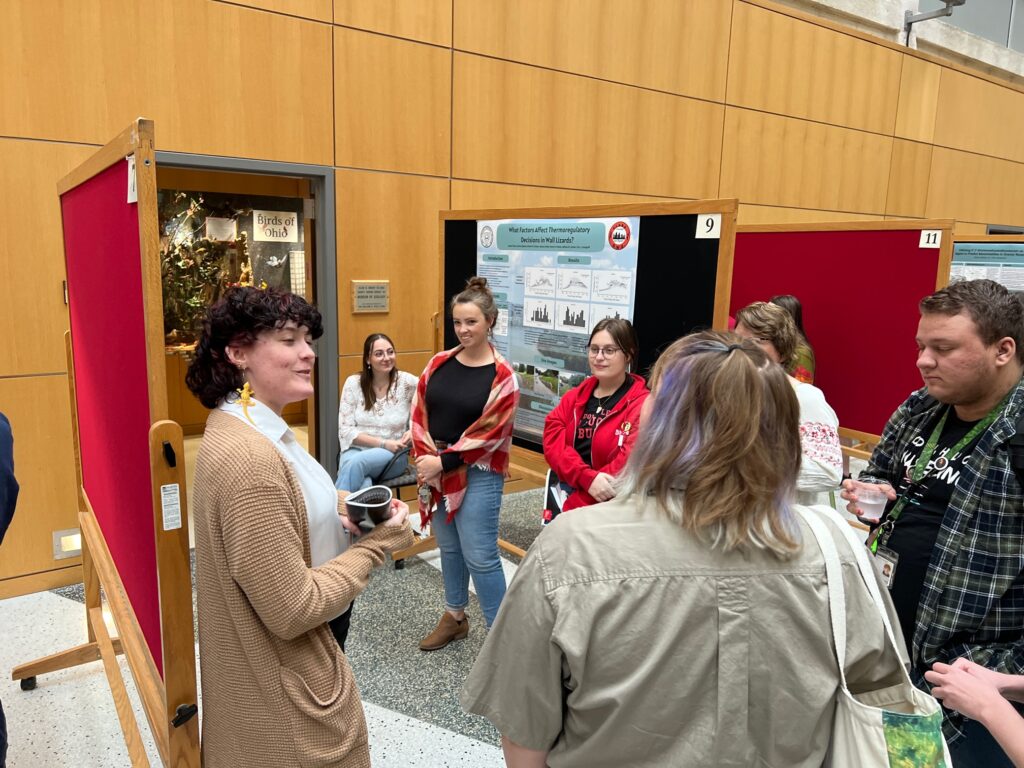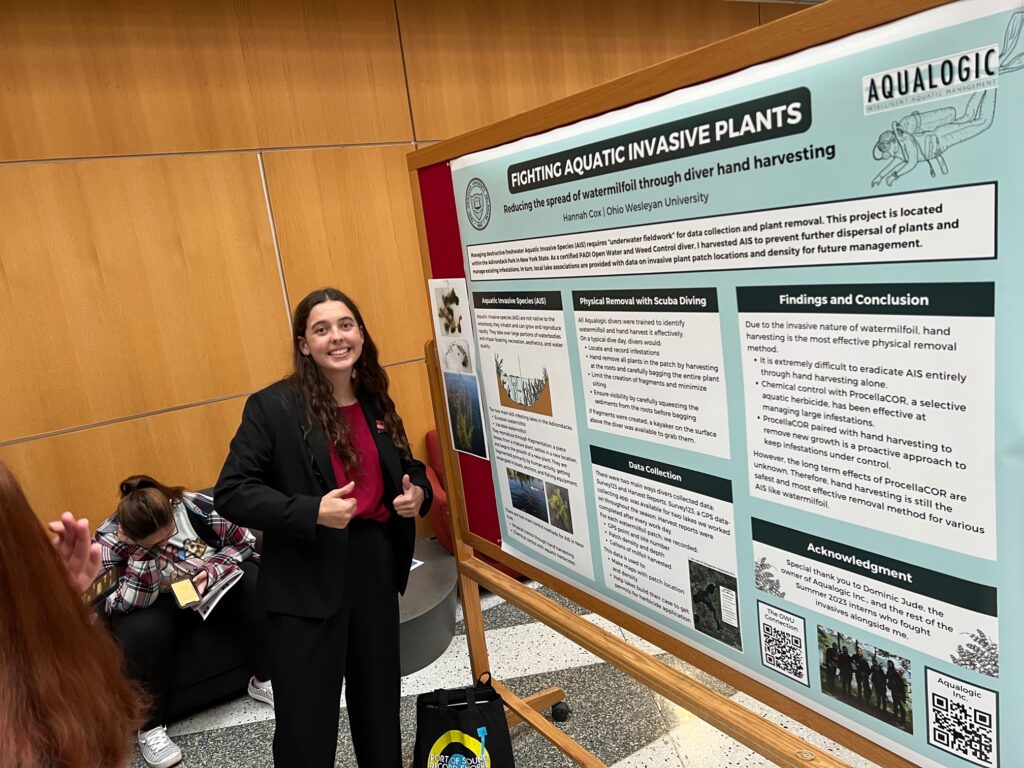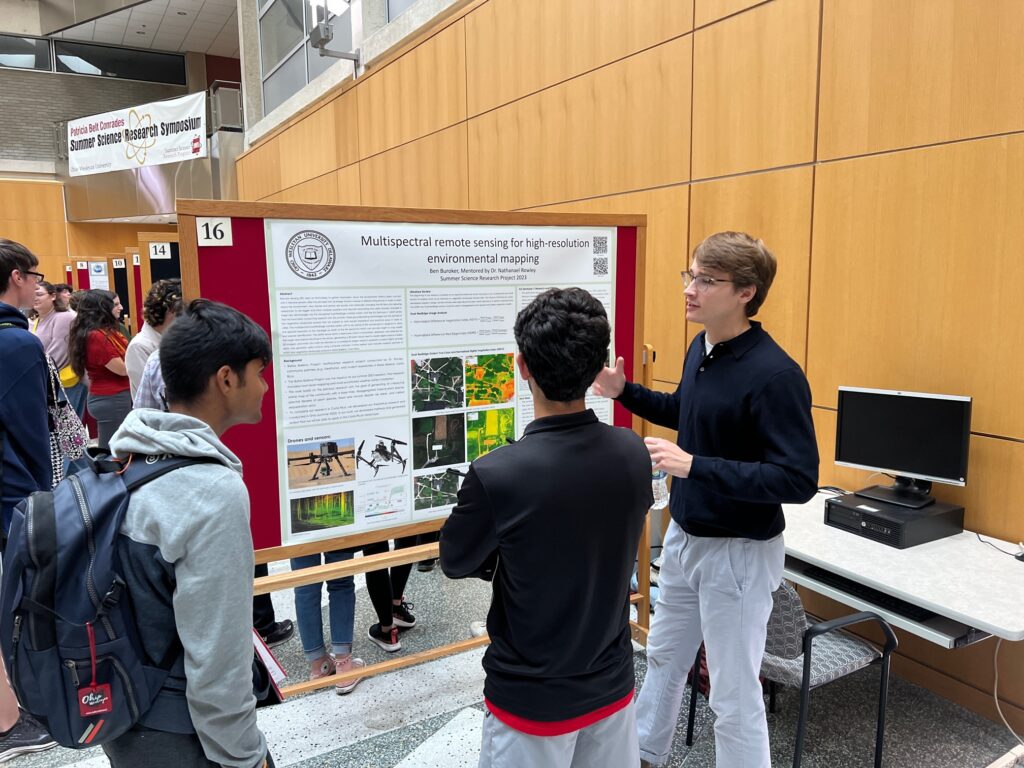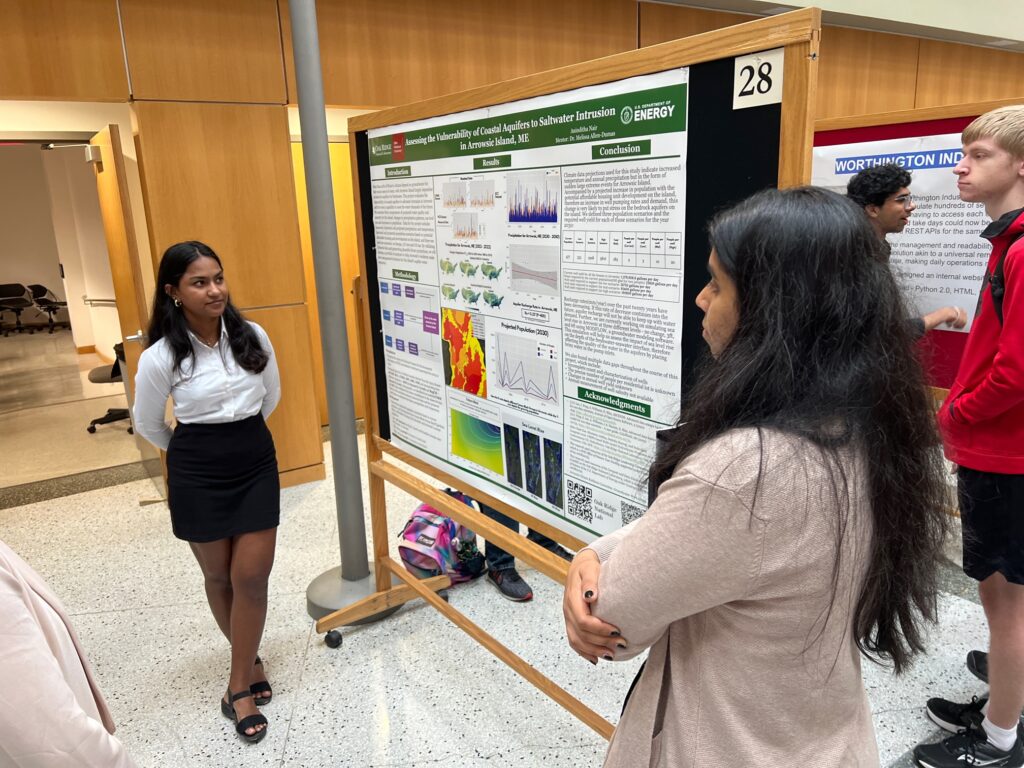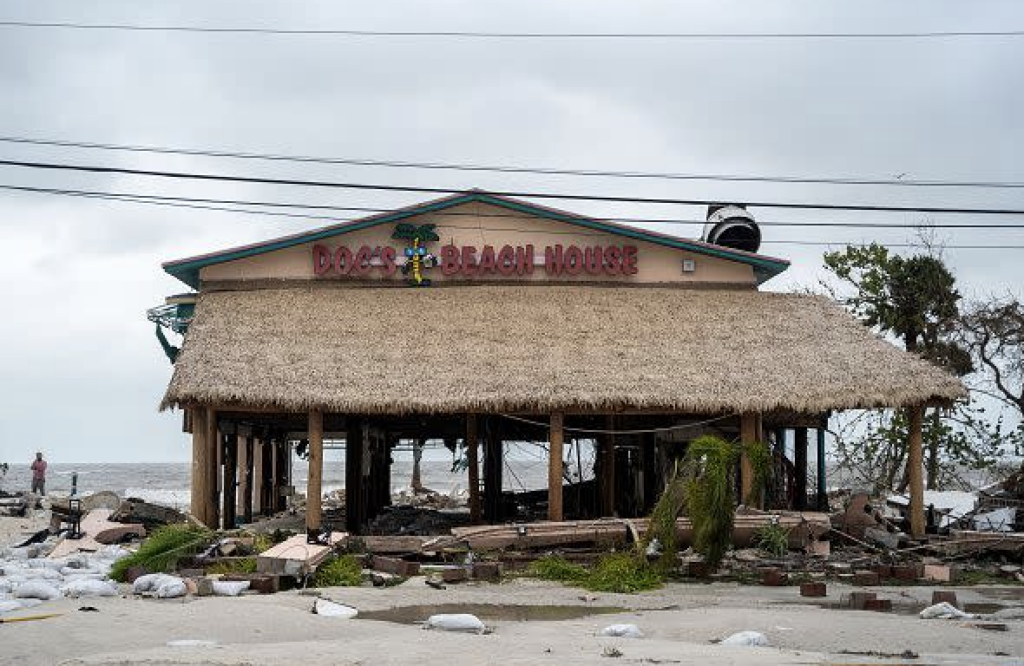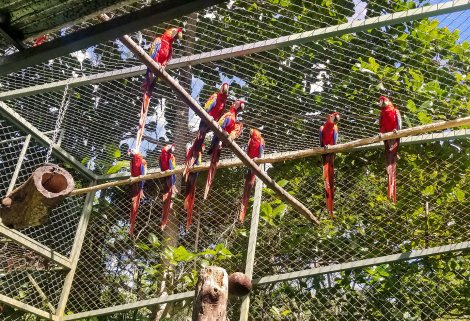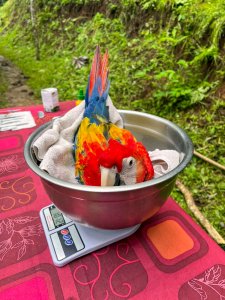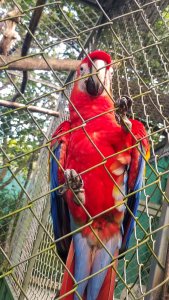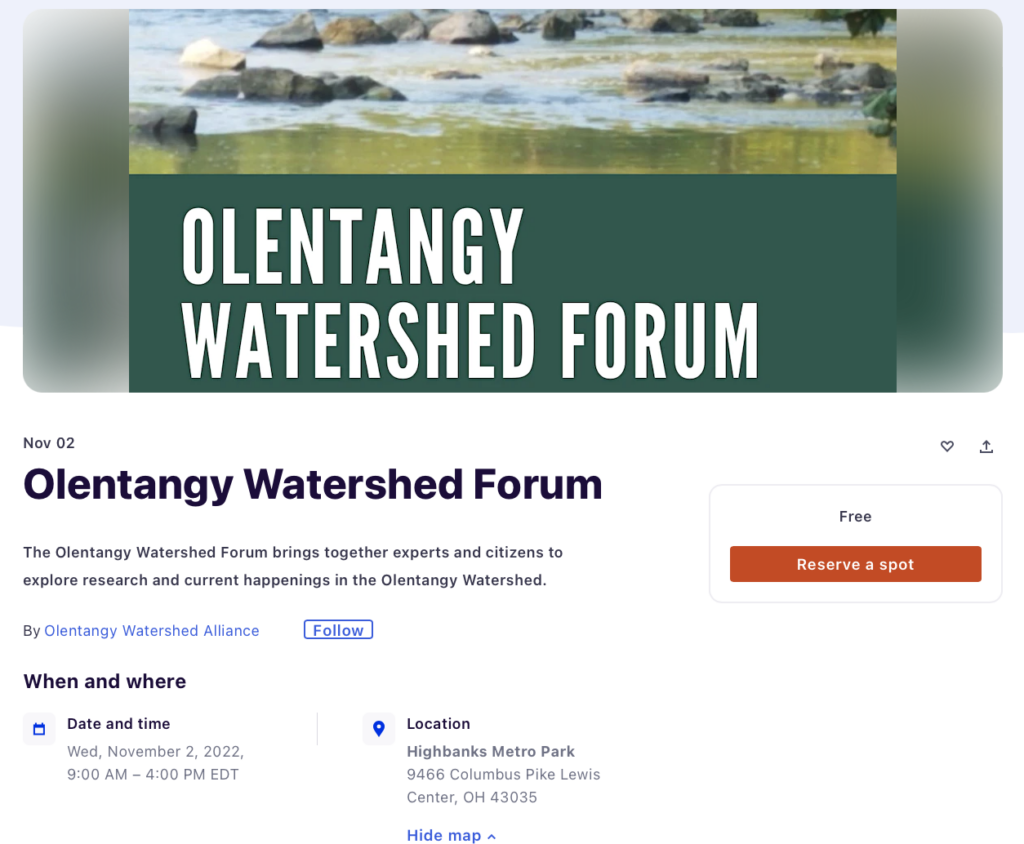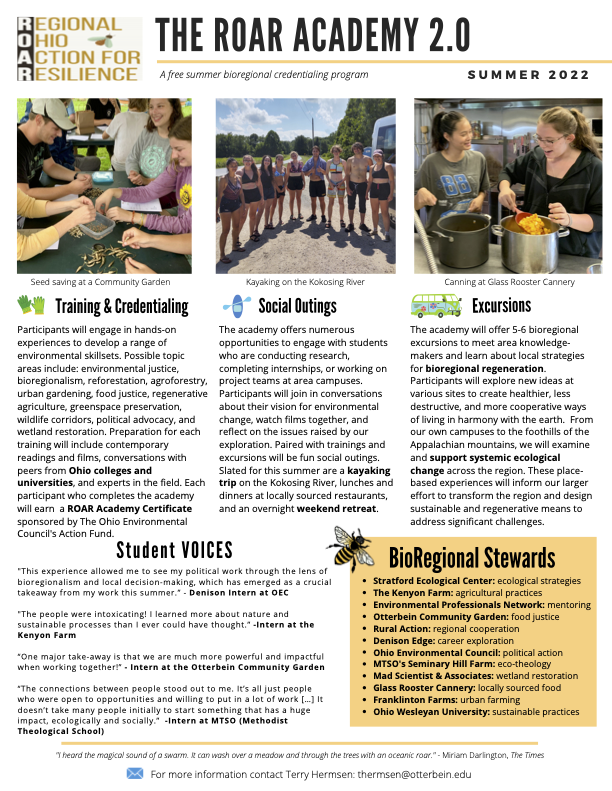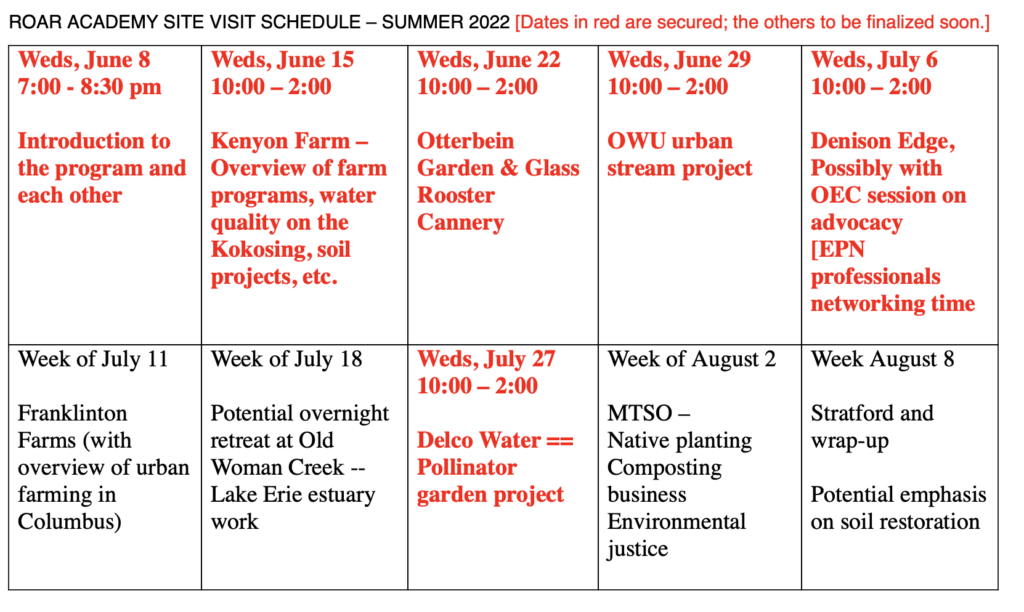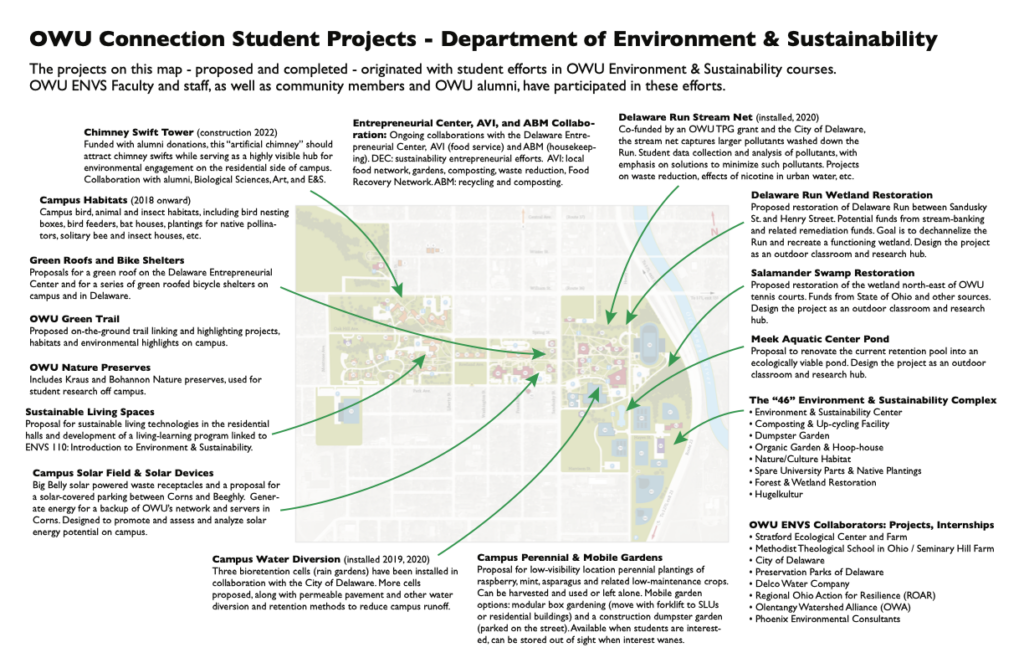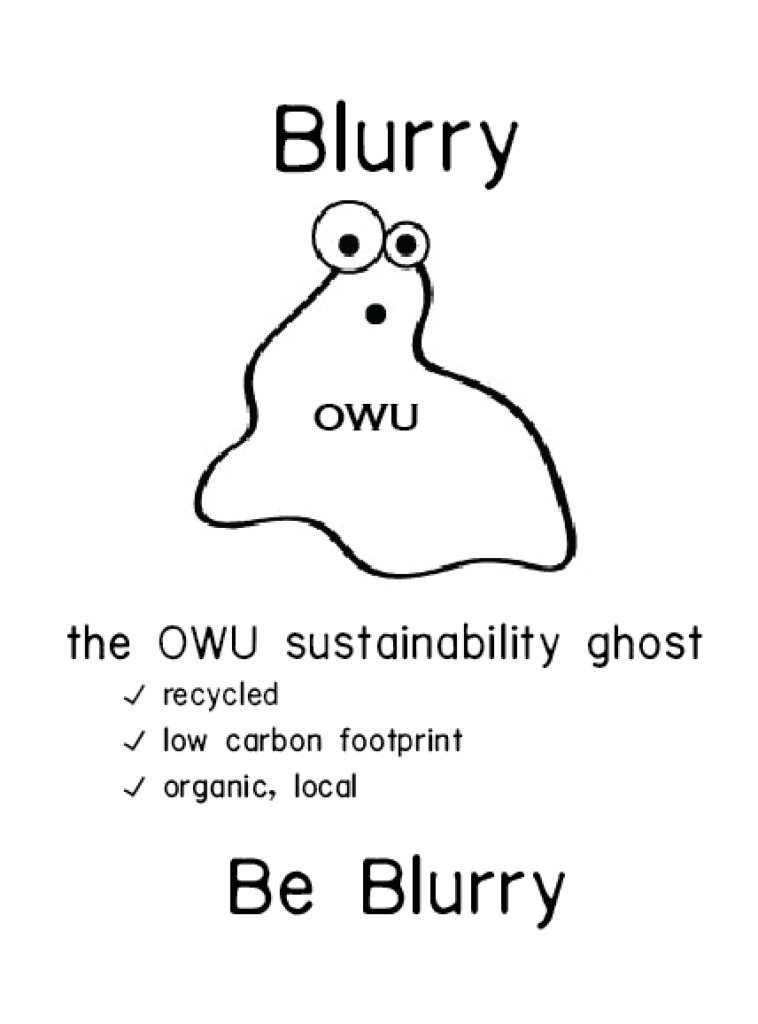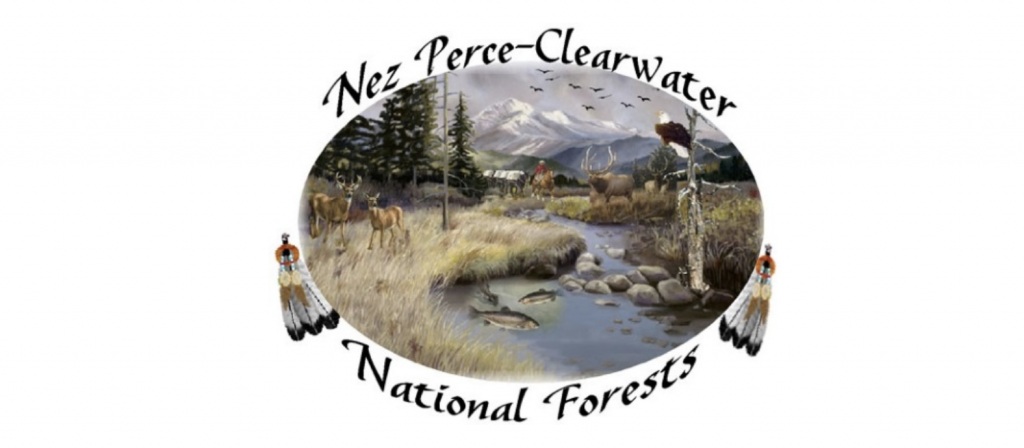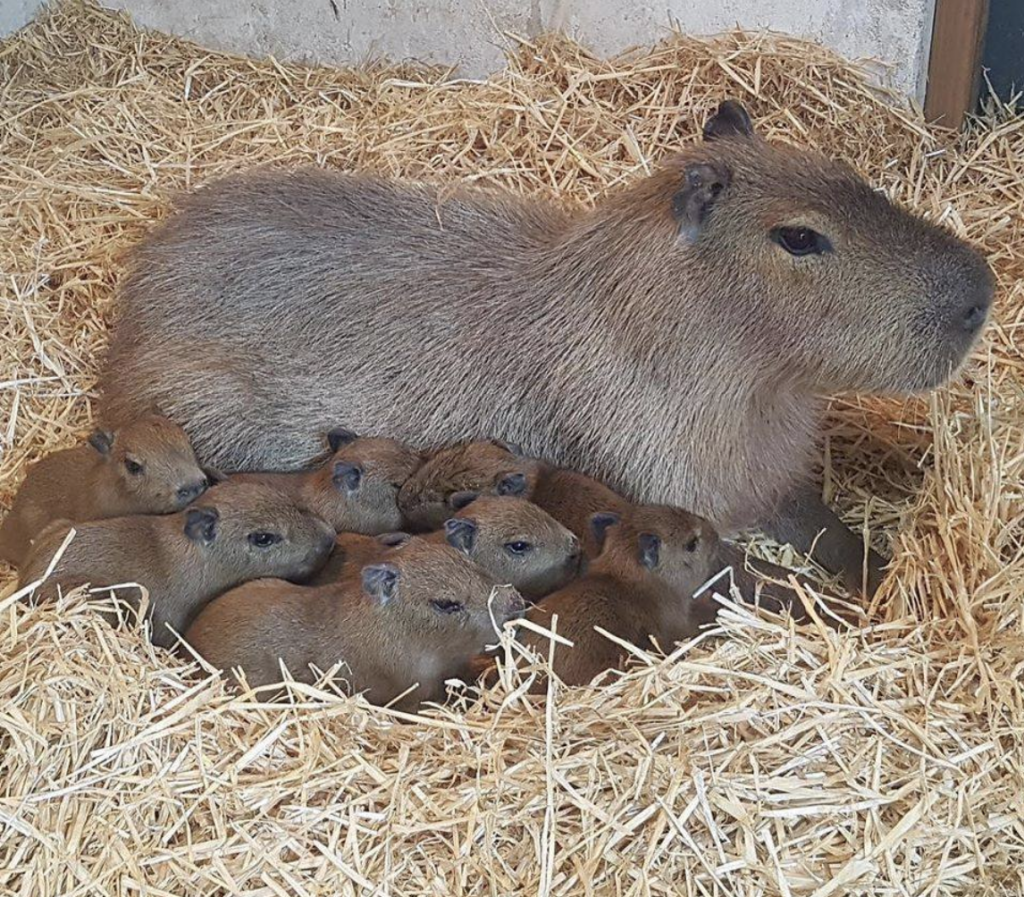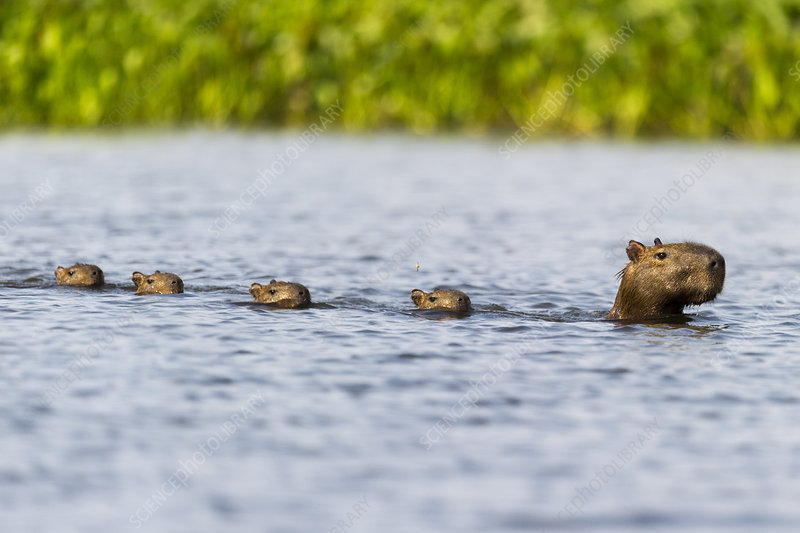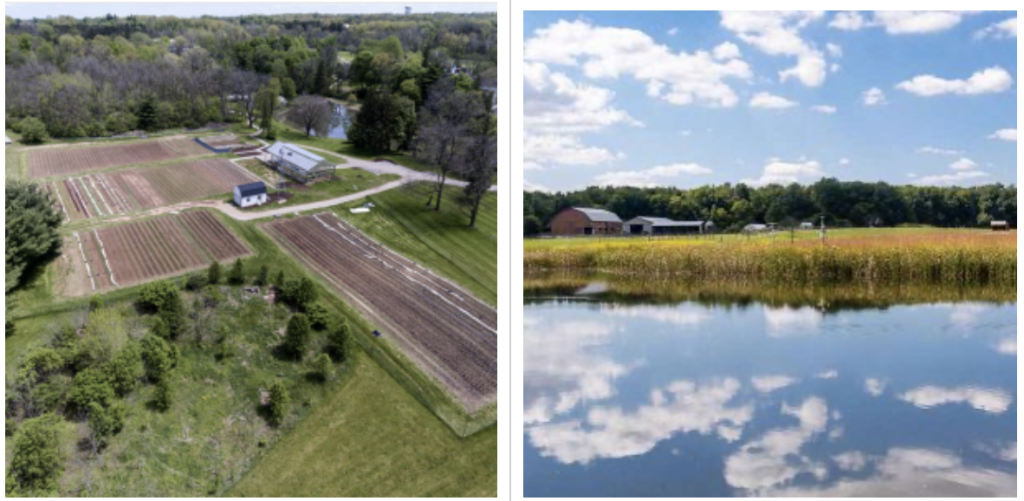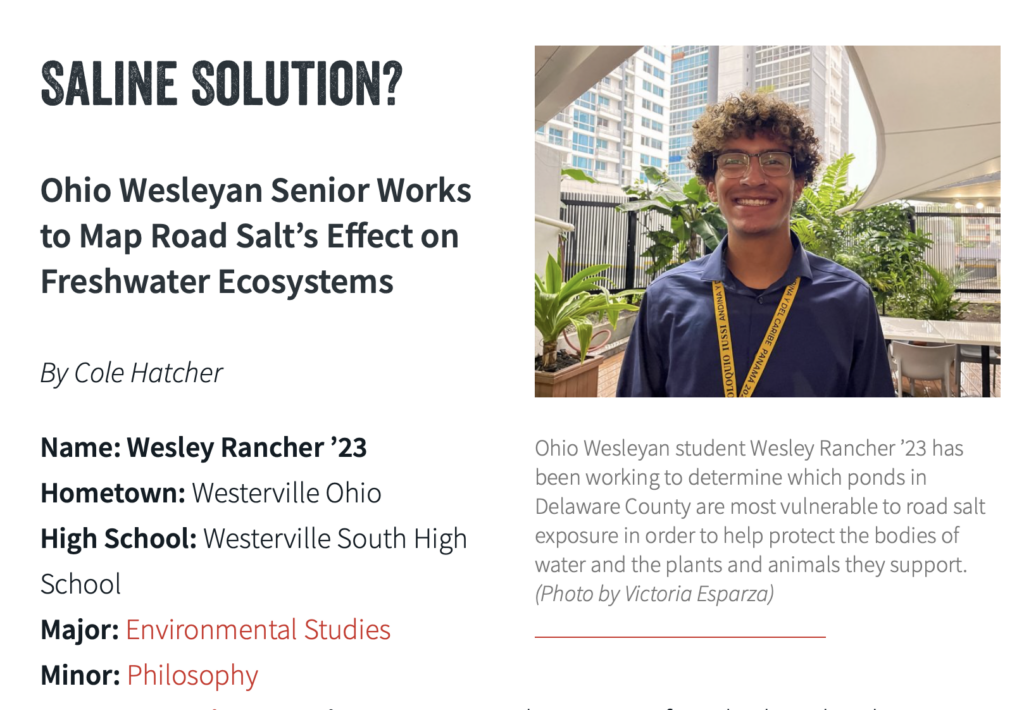
OWU Connection Experience: Mapping the impact of road salt on local freshwater ecosystems in Delaware County using ArcGIS, a type of online geographic information system software
Rancher has been working on an independent study project under the direction of Amy Downing, Ph.D., professor of Biological Sciences, with support from Nathan Rowley, Ph.D., associate professor of Environment and Sustainability, and John Krygier, Ph.D., professor of Environment and Sustainability and director of Environmental Studies.
The project is an expansion of research Downing conducted with scientists across North America and Europe to show the damage being done to freshwater lakes by salt concentrations that fall below the ranges government regulators have deemed safe for freshwater organisms.
“In this project,” Rancher said of his independent study, “we conducted an analysis to predict which ponds in Delaware County are most vulnerable to (road) salt exposure based on factors such as pond size, watershed size, distance from impervious surfaces, amount of impervious surfaces, and the amount of salt applied near a pond.”
Assessing Salt Vulnerability
“We connected with city and county departments to access data files such as digital elevation models (DEM), street centerlines, and aerial imagery, as well as to develop an understanding of how much salt is applied to which roads. At this point in time, we have been able to successfully apply this model to about five individual ponds, but the goal is to increase this amount to around 20 or more ponds and then go out and sample these ponds for chloride concentrations to compare to our predictions.
“The goal is to find a way to automate our analytical process in ArcGIS to allow us to develop a salt vulnerability assessment for all ponds in Delaware County and create a well-rounded map of the landscape. In theory, this might look something like a heat map where we score ponds based on our predictions for their vulnerability to salinization.
“For example, a pond with a high vulnerability might be scored a 10, correlated with dark red, and a low vulnerability pond might be a 1, associated with tan or yellow. In the end, our map may look different than this because we are dealing with hundreds of ponds and various factors that could sway a pond’s vulnerability to salt even to a degree. Therefore, this is something we must keep in mind in order to accurately represent and map our results.
“The intention would be to make the map accessible to the University and to the public through Arc Online once it is finalized.”
Lessons Learned
“Fall semester was very pivotal for me because I have gained confidence with ArcGIS and the research process, which I know will be very applicable in my graduate studies.
“There is always something that you are learning in the classroom that can have a real-world application, so I always try to approach a new class with this mindset and get something out of the experience.
“Moreover, independent research, whether it is by yourself and a professor or with a few peers and a professor, is a very genuine opportunity to develop hands-on skills and new interests/passions that you could then convert into your focus in graduate studies or even a career.”
My Favorite Moment
“My favorite moment throughout this experience was witnessing first-hand how receptive individuals of city and county departments were and seeing their willingness to help me find the information I needed and well wishes for the project. This is very meaningful because you can tell they care about who we are as students and what we have to offer, and they are not here to act as a barrier but to help you break down barriers and learn as much as possible.
“There is a lot that could come out of continued connections between OWU and people who work for Delaware City and County departments, and a lot of good is to come with a greater connection with the Delaware community.”
Next Steps
Rancher and Downing have drafted a first article outlining the project, “Developing a predictive model for pond salinization using readily available geospatial data,” which they hope, ultimately, to publish in a scientific journal.
“If we can automate our processes and establish a significant correlation between our predictions and actual observed concentrations for ponds, then publishing a paper would be the next step. Our (fall) project did not involve any other students, but including students in the future to help develop the model more or to go out and collect data would be awesome whether it be this spring or in future semesters.”
Why I Chose Ohio Wesleyan
“I chose Ohio Wesleyan because it was close to home so I could commute, and the campus was very beautiful.
“When I was looking into the University back in high school, I was unaware of the opportunities it would later provide me with. However, I am very grateful for my experience because of the close connections I have developed with peers and professors; opportunities to hone in on multidisciplinary skills in Science, Philosophy, and Spanish; and (ability to) conduct and present research through the OWU Connection and SSRP (Summer Science Research Program).”
My Plans After Graduation
“My plans after graduation are to enroll in a graduate program in Geography. I have applied to a few different master’s programs at universities in the U.S.
“Subsequent to my graduate studies, I really do not know what I want to do, but I would love to work in industry in a niche scientific field, either at a company that works on solving environmental problems out in the world, or at a company that needs more sophisticated understanding, recognition, and initiative towards its own environmental impact.
“To help me achieve my goals, OWU has provided me with a broad skill set and ability to problem-solve by considering multiple perspectives, and a stern objective to protect the welfare of future generations thanks to the motivations of various professors and a diverse course load that has interested and excited me.”
Shared from here
